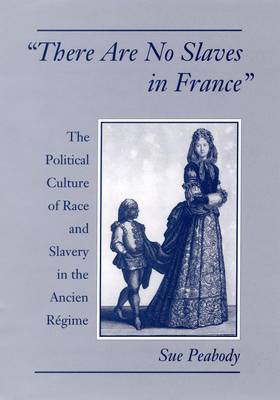
- Afhalen na 1 uur in een winkel met voorraad
- Gratis thuislevering in België vanaf € 30
- Ruim aanbod met 7 miljoen producten
- Afhalen na 1 uur in een winkel met voorraad
- Gratis thuislevering in België vanaf € 30
- Ruim aanbod met 7 miljoen producten
Zoeken
There Are No Slaves in France
The Political Culture of Race and Slavery in the Ancien Regime
Sue Peabody
Hardcover | Engels
€ 87,45
+ 174 punten
Omschrijving
"There Are No Slaves in France" The Political Culture of Race and Slavery in the Ancient Regime examines the paradox of political antislavery and institutional racism in the century prior to the French Revolution. Black slaves who came to France as domestic servants of colonial masters challenged their servitude in courts. On the basis of the Freedom Principle, a judicial maxim granting freedom to any slave who set foot in the kingdom, hundreds of slaves won their freedom. Sue Peabody shows how the political culture of late Bourbon France created ample opportunities for contestation over the meaning of freedom. Men of letters used the metaphor of slavery to critique the supposed despotism of Louis XV and Louis XVI. In the second half of the century, courts and the crown colluded to erect a series of laws prohibiting the entry of blacks into the metropolis. "There Are No Slaves in France" shows how both antislavery and anti-black discourses emerged from the tension between France's reification of liberty and its dependence on colonial slavery.
Specificaties
Betrokkenen
- Auteur(s):
- Uitgeverij:
Inhoud
- Aantal bladzijden:
- 224
- Taal:
- Engels
Eigenschappen
- Productcode (EAN):
- 9780195101980
- Verschijningsdatum:
- 24/10/1996
- Uitvoering:
- Hardcover
- Formaat:
- Genaaid
- Afmetingen:
- 148 mm x 219 mm
- Gewicht:
- 417 g

Alleen bij Standaard Boekhandel
+ 174 punten op je klantenkaart van Standaard Boekhandel
Beoordelingen
We publiceren alleen reviews die voldoen aan de voorwaarden voor reviews. Bekijk onze voorwaarden voor reviews.











